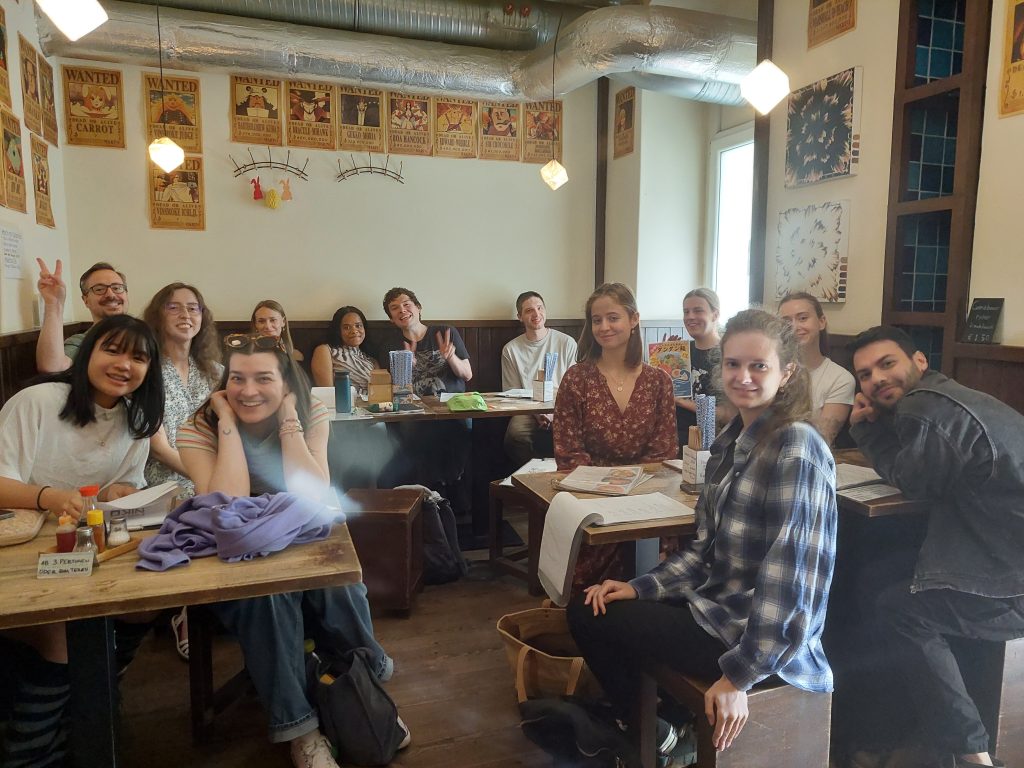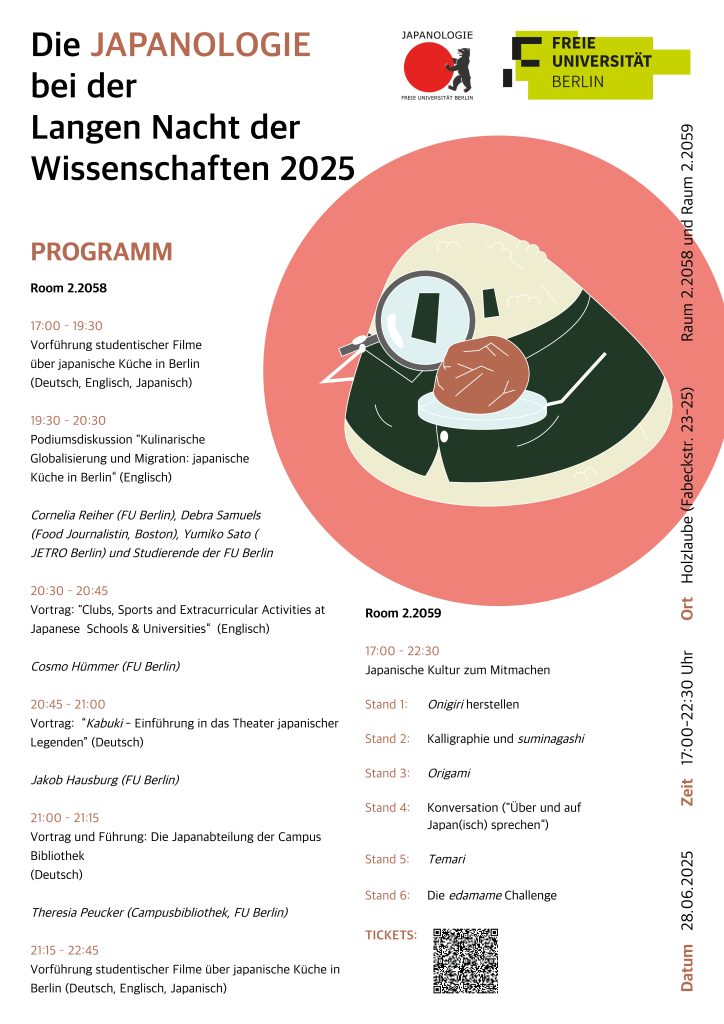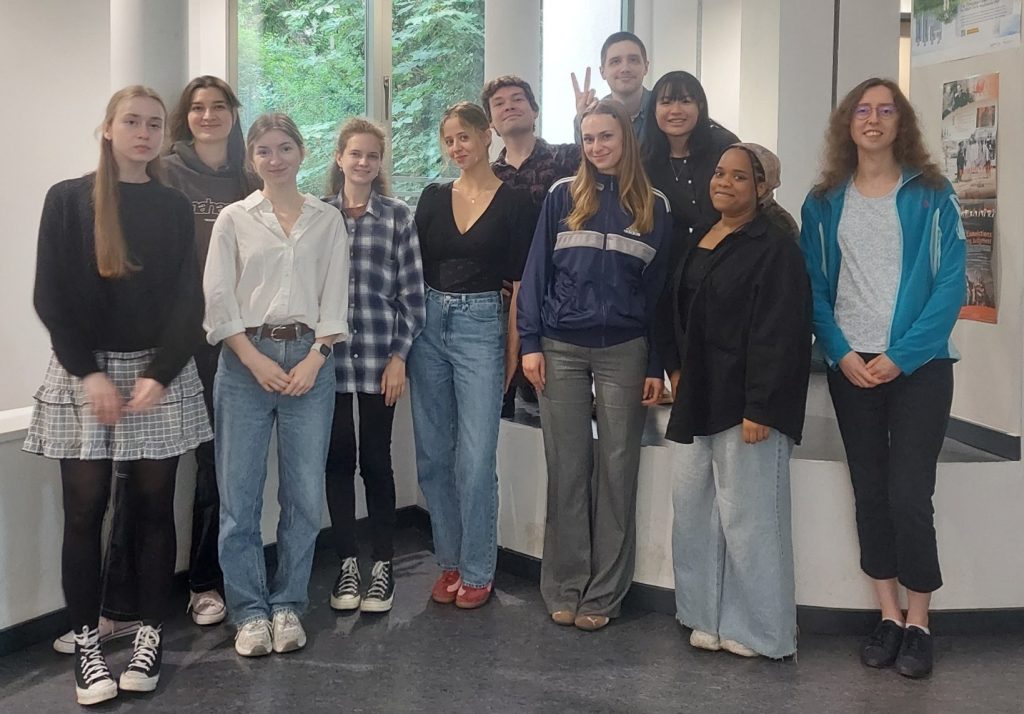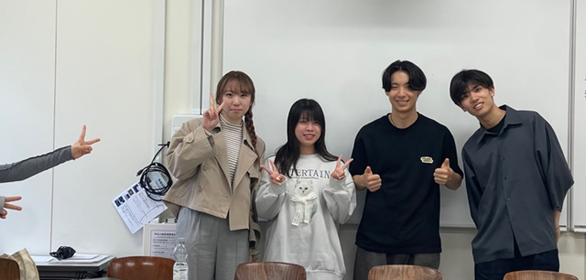by Ian “Nai” Harano Grey, Wai Yi Lam, Lisa Hetterling
For our class in Professor Reiher’s course we were tasked and paired up with a student from Japan to interview. Our group was lucky enough to interview Yurika Kudo, a student from Seikei University. We set up an interview on Zoom and spoke with her in Japanese about food cultures in Japan. Our objectives were to understand the globalization of food within the area Yurika lived within. For many of us, it was the first time conducting an interview in Japanese or even our first interview with a total stranger, making it a valuable hands-on experience.

Copyright © Cornelia Reiher 2025
Even though at first, we were a bit nervous we ended up becoming more and more comfortable the more we spoke. It allowed us to put into practice the theories we had learned in our methods class and served as a meaningful cultural and language exchange. The experience also helped us become more familiar with an interview setting and prepared us for future research. At the beginning, we worked to have more fun simple topics and added more complicated questions as the interview progressed.
After the brief self-introductions and some light-hearted small talk, we transitioned naturally into the conversation, which flowed effortlessly thanks to Yurika’s openness and the easy dynamic among all of us. Since she is originally from Akita, we first discussed the specialty food of the region. As we learned, Kiritanpo and Okomen are Akita’s specialties. Her favorite food is sushi, more specifically salmon sushi, and she enjoys Japanese cuisine a lot.
Talking with Yurika also offered us a glimpse into how culinary cultures appear in Tokyo. Korean food, for instance, is super popular among her peers. She especially loves tteokbokki (spicy rice cakes) and gejang (marinated crab) and likes to visit Shin-Okubo (Tokyo’s Koreatown) for new flavours. Indian curry, she noted, has also established itself as a simple yet tasty favourite. For all of Tokyo’s international options though, we reflected that foreign dishes often arrive more-or-less subtly reinterpreted, familiar in some ways, but distinctly local.
Similarly, when comparing notes on how Japanese food travels abroad, we came to an intriguing conclusion. California rolls for example, with their avocado and cream cheese filling, initially struck Yurika as very odd, but she saw them as part of a familiar pattern. We recognised that every culture and market tweaks more foreign flavours to their own palate and that of its consumers, whether that means toning down spices or adding familiar, local ingredients. With all of these fantastic exchanges we left the call feeling very energized about such a wonderful interaction.
This experience was not only a fantastic challenge, but also a great deal of fun! After the initial nerves we were able to have such a wonderful cultural exchange even though none of us were native in any of each other’s languages. Yurika was such a kind and high-spirited person and gave us really wonderful insights. Not only could we relate to so many aspects of foods that have travelled from Japan, but also the interview also showed how food does change when it travels. We all have a different connection to Japanese food and that connection was able to have us bond even upon first meeting.
When wrapping up we all were so happy and even took a screenshot to remember the moment. Interviewing in another language leaves some fear of misunderstandings or awkward miscommunications, but luckily even when there were complications, we were able to speak around the language gap to get to our points with haste. When both parties are willing to learn and exchange with each other it really makes for an energetic atmosphere. We are lucky that Yurika could foster that with us and are very thankful for such a wonderful experience.



